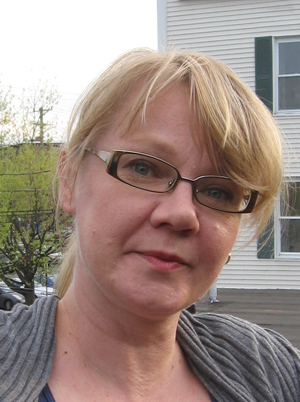About one year ago I attended an interesting event in Aalto University: “The Value of Diversity in Physics and Mathematics”. Among the speakers was Minna Nikunen, an affirmed senior researcher of gender studies and sociology now at University of Tampere. Minna, could you introduce yourself?
I am a senior researcher at the University of Tampere, School of Social Sciences and humanities, in gender studies. I am currently working in a project in which we study young adults and how they define successfulness and social exclusion and how they strive towards adulthood and working life.
I know there’s still some confusion about the definition of gender studies. Can you explain in simple words what they are about?
In gender studies we inspect the social aspects of sex and sexuality. Gender (roughly said social sex role) is not same in cultures, or in every phase in history. In some cultures there are three genders, and in some cultures those defined as physically women can be social men, and so on. People often think that features and typical ways to behave for women and me are universal and have always been that way, but if you think further, you know this is not the truth. For instance, in 80’s and 90’s people though that girls are naturally better in languages than boys and boys better in math than girls: Pisa research has actually shown that this is not the case anymore. So, in gender studies we are interested how people conceive differences between women and men, and how these interpretations affect many aspects of our social life, for instance working life roles and career advancement.
In particular, what is your area of research?
I am interested in gendered aspect of work and employment. Currently I am studying young adults and gendered and classed aspects of their future plans and definitions on being successful and being marginalized.
You published several papers [paper 1, paper 2, …] on the relation between work flexibility in academia and family duties in Finland. Can you highlight some of your findings?
I think it is interesting that even though academics think that university is a good workplace for parents because of this flexibility, still many thinks that having children affects women’s careers. Take for example international mobility. Actually, it is both fathers and mothers who report that they have difficulties in organizing this mobility. Additionally, according to the statistics, Finnish women researchers are as mobile as men. However, academics can perceive the mobility demand as harming women’s careers. There are actually vast differences between the EU countries considering gender and international mobility: for instance in Latvia it is quite uncommon for women to be mobile.
Flexibility can be also demanding on the part of an employee. One has to be quite active in organizing things, for instance if the child is sick. If one is employee in a firm that is not flexible, one can according the law stay at home if his/her child is sick, and there might be a substitute. At the university there are no substitutes, so you do your work at home or after you come back.
Still on family-work balance of researchers, how is the situation different in private research?
I have not studied this but I assume it is about the same. Do you mean by private research firms and industry? They have the same laws considering family leaves but I do not know if they are as flexible.
Does mobility in academia affect participation of women?
I not quite sure if I got this one. But I think it is not usually hindrance for women. Though there might be situations when travels and being mobile in impossible, for both men and women. It is not always possible to arrange things for mobility, even though there is support for taking your family with you.
Do you advocate for any policy change in academia in connection with your topics of research?
Gender and family responsibilities should be taken into account when rules and demands for tenure track and other positions are made. The academia should become more aware of gendered expectations and stereotypes.
Do you have any advice or message for girls and women who want to work in science?
I think that a woman or a girl in science does not have to be one of the boys. Being professional does not mean being masculine. Some disciplines can be more masculine than others, and then it is harder to break the norms. But making a norm visible is a good start.
Thank you, Minna!


